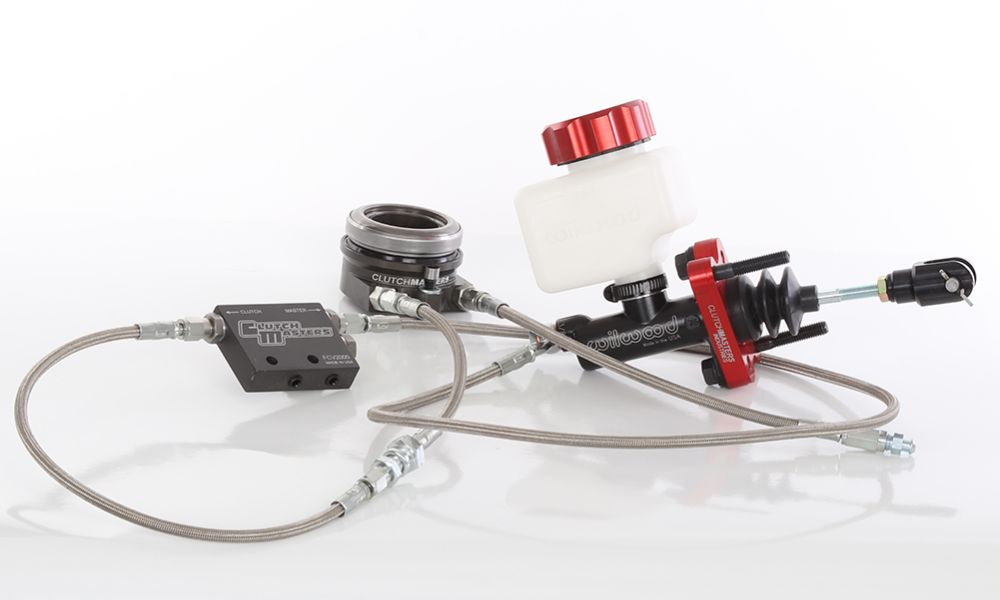Hydraulic Clutch Components: What You Need To Know

As a car enthusiast, you understand the importance of maintaining and upgrading your vehicle's components, especially regarding your manual transmission. One critical aspect that you should consider upgrading is your vehicle's hydraulic clutch system. Below, we delve into the key components of a hydraulic clutch system and what you need to know about each, from the clutch lines to the cylinders and more.
Hydraulic Cylinders
Hydraulic cylinders are essential components in the clutch system, with two key types: the master cylinder and the slave cylinder. The master cylinder is responsible for converting the mechanical pressure applied by the driver via the clutch pedal into hydraulic pressure. This pressurized hydraulic fluid then travels through the clutch lines to the slave cylinder, which applies the necessary force to engage or disengage the clutch.
Hydraulic Bearings
Hydraulic bearings, also known as hydraulic release bearings or concentric slave cylinders, play a vital role in the clutch's disengagement process. They replace the job of the slave cylinder actuating a clutch fork. Internal hydraulic release bearings help reduce friction and wear while increasing the overall reliability of the clutch system. Hydraulic bearings ensure consistent and smooth clutch engagement by actuating the clutch diaphragm directly; there is no leverage or pivot point to overcome. It is well known that some factory clutch forks become failure points as you upgrade to an aftermarket clutch that may use a heavier sprung diaphragm.
Clutch Lines
The clutch lines serve as the crucial link between the master cylinder and the slave cylinder. These lines transfer hydraulic fluid under high pressure from the master cylinder to the slave cylinder, which engages and disengages the clutch. High-quality steel braided clutch lines are recommended for optimal performance, as they reduce the risk of swelling and offer increased durability and heat resistance compared to their rubber counterparts.
Flow Control Valve
Managing the flow of hydraulic fluid within the clutch system is crucial for efficient operation. This is where the flow control valve comes into play. The valve maintains a consistent and controlled flow of hydraulic fluid from the master cylinder to the slave cylinder, ensuring smooth engagement and disengagement of the clutch. A high-quality flow control valve enhances clutch control, stability, and a longer lifespan for your clutch system components. A flow control valve is a way to fine-tune how aggressively the clutch engages. Lots of OE manufacturers equip their cars with clutch delay valves. These work similarly to the flow control valve but typically restrict the flow of fluid when you release the clutch pedal drastically. This is done to make day-to-day driving an easier task with a manual transmission vehicle and helps lessen the chance of stalling the car when releasing the clutch. These clutch delay valves can be detrimental in a performance application and have a noticeable effect on the way the clutch engages, often causing what is known as “rev hang.” Our flow control valves are significantly less drastic in the way they work and are designed to help dampen shock to the drivetrain when aggressively shifting and the clutch gets “dumped.”
Find Quality Clutch Components at Clutch Masters Industries
Now you know what you need to know about hydraulic clutch components. If you're looking to improve the performance of your manual transmission vehicle, upgrading your clutch lines, hydraulic cylinders, flow control valves, and hydraulic bearings could be the ticket to significantly enhancing your driving experience. When searching for high-quality components for a hydraulic clutch for sale, look no further than Clutch Masters Industries, which offers an extensive range of performance-driven products designed for car enthusiasts like you. Take your driving experience to the next level by upgrading your vehicle with Clutch Masters Industries today.


